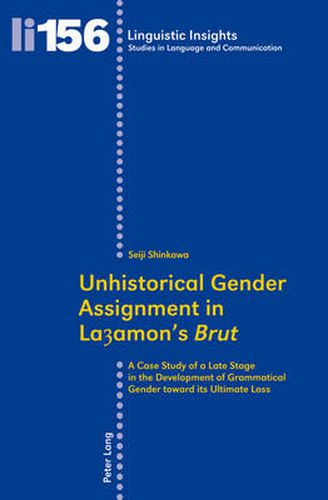Readings Newsletter
Become a Readings Member to make your shopping experience even easier.
Sign in or sign up for free!
You’re not far away from qualifying for FREE standard shipping within Australia
You’ve qualified for FREE standard shipping within Australia
The cart is loading…






This book explains how and why grammatical gender disappeared from English through a detailed analysis of unhistorical gender assignment within the noun phrase in Layamon’s Brut, one of the most important Early Middle English texts. Such deviations do occur capriciously but not randomly, suggesting a development of innovative functions of the attributive forms concerned.
These innovations are mainly of two types: gender-insensitive uses as a case marker and a shift from a bipartite to tripartite system of defining words, the, that, and this. The author discusses these innovations, focusing on their implications for the subsequent development and eventual loss of grammatical gender.
$9.00 standard shipping within Australia
FREE standard shipping within Australia for orders over $100.00
Express & International shipping calculated at checkout
This book explains how and why grammatical gender disappeared from English through a detailed analysis of unhistorical gender assignment within the noun phrase in Layamon’s Brut, one of the most important Early Middle English texts. Such deviations do occur capriciously but not randomly, suggesting a development of innovative functions of the attributive forms concerned.
These innovations are mainly of two types: gender-insensitive uses as a case marker and a shift from a bipartite to tripartite system of defining words, the, that, and this. The author discusses these innovations, focusing on their implications for the subsequent development and eventual loss of grammatical gender.